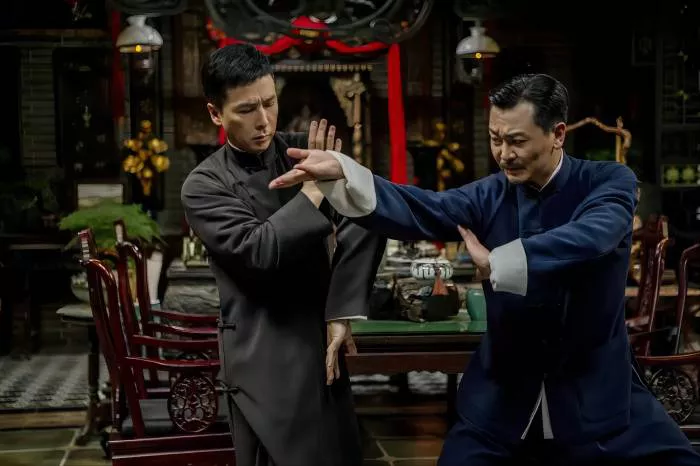In “Ip Man 4: The Finale,” the antagonistic force primarily manifests in the form of Colin Frater, portrayed by Scott Adkins. Frater serves as the primary antagonist, embodying the discriminatory attitudes and oppressive practices prevalent within the American martial arts community during the 1960s. However, there are other characters who contribute to the conflict and serve as obstacles to Ip Man’s objectives throughout the film. Let’s delve into the portrayal and significance of each of these antagonists:
-
Colin Frater
Colin Frater is a Marine Corps officer and the head of the East Coast Karate Association in San Francisco. He represents the entrenched prejudice and disdain towards Chinese martial arts within the American martial arts establishment. Frater is portrayed as a skilled martial artist, proficient in karate, and possesses a commanding presence that instills fear and respect among his followers. He views Chinese martial arts as inferior and seeks to undermine their legitimacy by imposing discriminatory rules and regulations, particularly targeting Ip Man and his Wing Chun disciples. Frater’s arrogance and bigotry fuel the conflict between him and Ip Man, culminating in a climactic showdown that serves as the film’s climax.
-
Barton Geddes
Barton Geddes is a Marine Corps officer and a close associate of Colin Frater. He serves as Frater’s right-hand man and enforces his leader’s discriminatory policies within the military ranks. Geddes embodies blind loyalty to Frater’s ideology, displaying a willingness to resort to violence and intimidation to maintain control over the military base and suppress dissenting voices, including that of Ip Man. His confrontations with Ip Man underscore the institutionalized racism prevalent within the military hierarchy and add layers of tension to the narrative.
-
Bob
Bob is a Marine Corps recruit who initially serves as a sparring partner for Ip Man’s son, Ip Ching, at the military base. However, Bob’s affiliation with Frater and Geddes leads him to become embroiled in their discriminatory practices. Despite harboring reservations about their actions, Bob ultimately succumbs to peer pressure and participates in the harassment of Ip Man and his students. His character exemplifies the moral ambiguity and internal conflict faced by individuals caught between loyalty to authority figures and adherence to ethical principles.
-
Hartman Wu
Hartman Wu is a Chinese-American student and martial artist who aspires to join the prestigious West Point Military Academy. However, his dreams are jeopardized by the discriminatory policies enforced by Frater and Geddes, which prevent him from showcasing his martial arts skills during the academy’s admissions process. Wu’s character serves as a representation of the systemic barriers faced by ethnic minorities in pursuit of equal opportunities and recognition within American society. His struggles parallel those of Ip Man and underscore the broader themes of racial discrimination and cultural identity explored in the film.
-
Wan Zong Hua
Wan Zong Hua is a traditional Chinese martial arts master and former disciple of Ip Man. Despite his initial animosity towards Ip Man due to a perceived betrayal in the past, Wan ultimately aligns himself with Ip Man and becomes an ally in the fight against Frater and Geddes. Wan’s character undergoes significant development throughout the film, transitioning from a position of resentment to one of reconciliation and solidarity with Ip Man. His redemption arc highlights themes of forgiveness, redemption, and the unbreakable bonds forged through martial arts brotherhood.
“Ip Man 4: The Finale” features a diverse array of antagonistic characters who embody the systemic prejudice, oppression, and conflict faced by Ip Man and his allies in their quest for justice and recognition. Through their interactions with Ip Man, these antagonists serve to underscore the film’s thematic exploration of racial discrimination, cultural identity, and the enduring spirit of resilience in the face of adversity.
https://www.rnada.com/archives/12550

